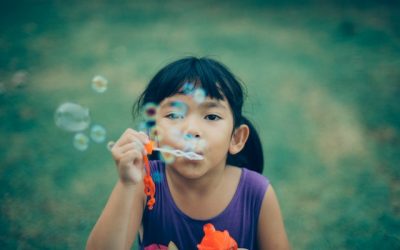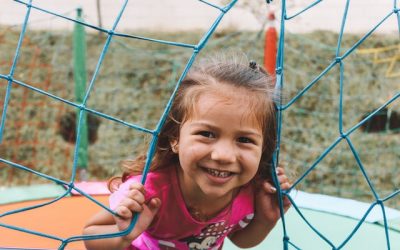Click below for the handouts from the September 9, 2010 Honolulu Victims Act Model Court Multidisciplinary Training conference.
Hawaii Data Trends by Race and Ethnicity – Diana English Ph. D
SPEAKER BIOS
Iokona Baker, J.D.
Iokona Baker is a 2006 graduate of the William S. Richardson School of Law and a former Ka Huli Ao Post-JD fellow who researched the over-representation of Native Hawaiian Children in the foster care system. Since 2007, he has worked in the State’s Family Court system as a Vitousek-King Law Fellow, focusing on child welfare issues and the improvement of child welfare policy, procedure and practice. Mr. Baker sits on the Oʻahu County Domestic Violence Task Force and volunteers his time doing community outreach on the issue of domestic violence, with special focus on strategies to address domestic violence in Hawaiian families & communities.
Rita Cameron-Wedding, Ph.D.
Rita Cameron-Wedding, Ph.D. is the Chair of the Department of Women’s Studies and a professor of Women’s Studies and Ethnic Studies at California State University, Sacramento. Dr. Cameron-Wedding’s scholarship focuses on race and gender disproportionality in institutions like child welfare, and its implications to the education and the criminal justice system.
Dr. Cameron-Wedding has taught courses and developed curricula for social workers, clerks, supervisors and judges in child welfare services for over five years. She wrote the curriculum for Addressing Racial Disproportionality in Child Welfare, One Social Worker, One Solution at a Time. She has made presentations to the Children’s Bureau in Washington D.C., and has taught nationally for the National Council of Juvenile and Family Court Judges and for the annual meeting of Beyond the Bench a statewide conference devoted to children in the court system in California. Her curriculum on disproportionality was integrated into the California State Framework which is used to train all social workers in the State of California.
Dr. Cameron-Wedding has conducted county-wide trainings for Contra Costa, San Joaquin, Santa Clara and Ventura counties (in California), provided numerous keynote addresses throughout California including the Annie E. Casey Family to Family Initiative on topics such as domestic violence, poverty and social class and substance abuse. She is a faculty for the National Council of Juvenile and Family Court Judges (NCJFCJ) and a consultant to the Annie E. Casey Foundation.
Diana English, Ph.D.
Dr. Diana J. English is a Senior Director, Strategic Consulting, Casey Family Programs. Since 2007, Dr. English has been working with the State of Hawaii to safely reduce the number of children entering foster care, reduce the length of stay for children who enter out-of-home placement; and if unable to return to their family increase the number of children placed with relative/kin and who have permanent legal families. Dr. English completed her PhD in Social Welfare at the University of Washington, School of Social Work in 1985. In addition, Dr. English has a Bachelor and Masters degree in Social Work. Dr. English has participated in numerous national and state child welfare committees and commission, presented at numerous national 2
and international conferences on child welfare, and published over 80 articles and reports on child welfare issues.
Mimari A. Hall, M.A.
Mimari A. Hall is a Model Court Liaison for the Victims Act Model Court Project with the Permanency Planning for Children Department of the National Council of Juvenile and Family Court Judges (NCJFCJ). She assists her Model Courts with their court improvement efforts in child abuse and neglect cases. As a Liaison she provides court performance assessment, technical assistance, and training on a variety of topics including, but not limited to, judicial leadership, court performance measures, best practices in child abuse and neglect court practices, and child protection and welfare.
Jocelyn Howard, B.A.
Jocelyn Howard was born and raised in Namwonwito Atoll in Chuuk. She graduated from Xavier High School, Jesuit School in Micronesia; studied Anthropology, Biology, and Pacific Island Studies at UH-Hilo; and earned a BA degree in Anthropology and a Certificate in Pacific Island Studies. One of the founders of the Micronesian Cultural Awareness Program and Young Voyagers program, Jocelyn is also an active member of the Nation of Micronesia, Micronesian Community Network, and Micronesian Health Advisory Council. She currently serves as the Program Coordinator for Imi Loa Program, Immigrant Employment, at Goodwill Industries of Hawaii, Inc. Jocelyn considers herself lucky to be raised by her grandparents, to have grown up Namwonweito Atoll, and educated in western colleges.
Wayde Hoapili Lee
Wayde Hoapili Lee is Director of Kahua Ola Hou, a program based on Native Hawaiian values and traditions, since 1990; the organization’s most current program focuses on preventing underage drinking. He also currently serves as Director of Hoaloha, which provides training consultancy for Native Hawaiian cultural practitioners (including Pilina Ohana, Pilina Aina, Pilina Kai) in traditional disciplines of Hooponopono, Hoopono, Hookau, Mahiai, and Kilo kilo. He is currently on the advisory board of JSAC of the Office of Youth Services; and a community advisory board member for the UH Department of Psychiatry, Asian and Pacific Islander Youth Violence Prevention Center. Mr. Lee also currently chairs the Ethnic and Cultural Diversity Committee for JSAC and Moloka`i’s Hawaii Underage Drinking Committee; and is Aha Kiole Moku’s representative for Palaau.
He has also been program director of Molokai-based Hale Pohakulea, outpatient adult treatment program from 1980-1985; social worker for Child Protective Service, 1978-1980; has facilitated Alternatives to Violence, a reentry program on Moloka`i for men formerly incarcerated, from 1980 to the present; facilitated Ohana Conferencing on Moloka`i on contract with Child Protective Services, from 1980-1986. He has been a trainer in facilitation for many best practice curricula for 20 years, and developed and implemented Native Hawaiian cultural holistic substances abuse treatment and prevention curriculum for adolescents. He is a founder of Hui Malama O Moomomi, which manages over 383 acres of land designated for Native 3
Hawaiian cultural subsistence practices; and is the founder of Hui Ho`okupono Youth Group, which is focused on leadership development and stewardship and was awarded a 2003 Governor Youth Advocacy Award. Mr. Lee has conducted substance abuse training for the Hawaii Department of Health (ADAD), Hawaii Department of Education, University of Hawaii, and various non-profit youth-serving organizations. He is former chair of the State of Hawaii, Moloka`i Burial Council; and former chair of Disproportionate Minority Contact Committee of the US Office of Juvenile Justice Delinquency Prevention.
Emma Reimers, M.A.
Emma Reimers was born and raised on Majuro, Republic of Marshall Islands and is fluent in English and Marshallese. She moved to Hawaii when she was eighteen to attend Hawaii Pacific University (HPU), where she graduated in 2006 with a Bachelors in Social Work. After working at Big Brothers Big Sisters of Honolulu, Emma went back to HPU and graduated with a Masters in Social Work in 2008. While working on her masters degree, Emma did her internship at the Light House Outreach Shelter, where 90% of the population was Micronesian. One of Emma’s goals is to assist the Micronesian population in Hawaii and help all service providers obtain a better understanding of the Micronesian Islands and the people. Emma has worked with EPIC Ohana Conferencing for a year as a Coordinator and Interpreter for Ohana Conferencing.




